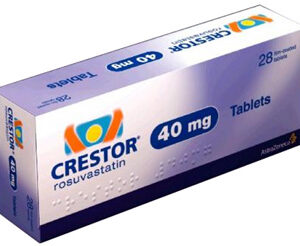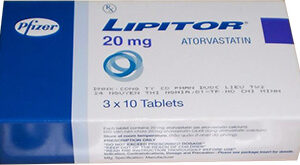Drug Name: Lipitor
Lipitor, known by its generic name atorvastatin calcium, is a therapeutic agent designed to lower lipid levels. It belongs to a class of medications known as statins which operate by inhibiting the enzyme HMG-CoA reductase which plays a central role in the production of cholesterol within the liver.
Indications and Usage
Lipitor is indicated for the treatment of high cholesterol and triglyceride levels, which can contribute to cardiovascular disease. This medication is primarily prescribed to reduce the risk of myocardial infarction, stroke, revascularization procedures, and angina in patients with multiple risk factors for heart disease. It is also utilized in the management of elevated LDL cholesterol in patients with type 2 diabetes and in individuals suffering from familial hypercholesterolemia.
Dosage and Administration
The initial recommended dosage of Lipitor varies depending on the individual’s cholesterol level, risk factors for cardiovascular disease, and response to therapy. The typical starting dose is 10-20 mg once daily, which may be adjusted up to a maximum of 80 mg per day based on therapeutic response and tolerability. Lipitor can be administered at any time of day, with or without food.
Contraindications
To avoid potential health risks, Lipitor is contraindicated in individuals with known hypersensitivity to atorvastatin or any of its components. It should not be used by patients with active liver disease or by women who are pregnant, nursing, or who may become pregnant because of the risk of harm to the fetus.
Warnings and Precautions
Lipitor usage requires several safety considerations. It can cause myopathy and rhabdomyolysis, particularly at higher doses. The risk increases in the elderly, individuals with kidney impairment, and with concurrent use of certain medications. Routine monitoring of liver enzymes is advisable as atorvastatin has been linked with liver abnormalities. This medication should also be used cautiously in individuals who consume substantial quantities of alcohol or have a history of liver disease.
Adverse Reactions
While many tolerate Lipitor well, it can still provoke unwanted reactions. The most commonly observed include gastrointestinal symptoms (such as diarrhea, constipation, and nausea), headaches, muscle pains, and an elevated serum transaminase level. Serious adverse effects, while less common, include liver failure, systemic and cutaneous lupus erythematosus, and cognitive impairment.
Drug Interactions
Concurrent administration of Lipitor with certain drugs can raise its blood concentration, potentially leading to increased risk of myopathy or rhabdomyolysis. These medications include, but are not limited to, fungicides, certain antibiotics, HIV protease inhibitors, and other cholesterol-lowering treatments. Additionally, Lipitor can augment the effect of oral anticoagulants, thus necessitating close monitoring of prothrombin time.
Use in Specific Populations
Special consideration should be taken when prescribing Lipitor to specific population groups. In pediatric patients, the safety profile appears similar to that of adults, yet efficacy in individuals under 10 is not well established. Pregnant women are advised against using Lipitor due to the risk of fetal harm, and caution is advised in geriatric patients, particularly with escalated dosages.
Overdosage
In events of overconsumption, symptomatic treatment and supportive measures should be initiated. Lipitor is not significantly removed by hemodialysis; thus, in cases of overdosage, dialysis may not be effective as an emergency measure. Patients should be closely observed and laboratory variables should be monitored to gauge any potential risk to health.
Description
Lipitor comprises of atorvastatin calcium, a crystalline powder that is white to off-white in color and insoluble in aqueous solutions of pH 4 and below. Atorvastatin calcium is an inhibitor of HMG-CoA reductase and is available for oral consumption in tablets ranging from 10 mg to 80 mg of atorvastatin.
Clinical Pharmacology
Lipitor’s mechanism is founded upon the selective and competitive inhibition of HMG-CoA reductase. This blockade hinders the biosynthesis of cholesterol, leading to a surge in the number of hepatic LDL receptors on the cell surface, enhancing uptake and catabolism of LDL and lowering LDL levels in the blood.
Nonclinical Toxicology
In animal studies, Lipitor demonstrated toxic effects on embryos and fetuses at doses above those used for human therapy. These effects included developmental delays, CNS malformations, and skeletal abnormalities. In rodent models, long-term use of atorvastatin was associated with an increased risk of hepatocellular carcinomas.
Clinical Studies
Extensive clinical trials have validated the effective role of Lipitor in reducing LDL cholesterol and triglycerides while modestly elevating HDL cholesterol. Furthermore, studies have proven that Lipitor can significantly diminish the risk of having a heart attack, undergoing heart surgery, or experiencing chest pain in individuals with heart disease or several common risk factors for heart disease.
How Supplied/Storage and Handling
Lipitor is supplied in tablet form in doses of 10, 20, 40, and 80 milligrams. Tablets should be stored in a dry place at controlled room temperature, away from excess moisture and beyond the reach of children.
Patient Counseling Information
Patients should be advised on several key aspects of Lipitor therapy. They should be educated on the substance’s intent which is to complement, not replace, lifestyle changes conducive to reducing cardiovascular risk. The importance of adhering to prescribed diets, as well as the potential side effects and the necessity of immediate medical attention in case of unexplained muscle pain, tenderness, or weakness, particularly if accompanied by malaise or fever, should be stressed.
Medication Guide
The provided medication guide should be dispensed with Lipitor, ensuring patients have full access to information regarding the risks and benefits of taking this medication. This ensures that patients retain an autonomous role in their healthcare management, supported by comprehensive knowledge of their treatment.



Reviews
There are no reviews yet.